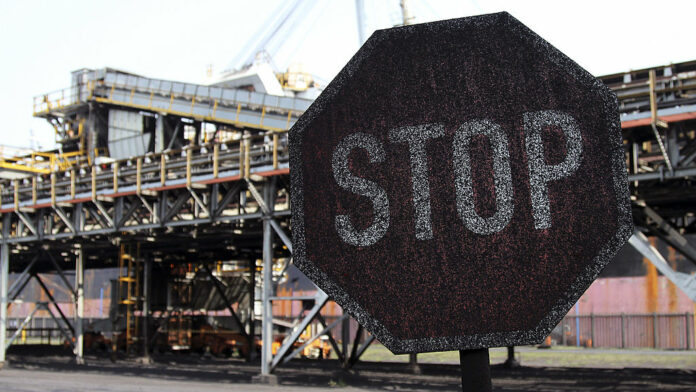
THUNGELA Resources said the failure of Transnet Freight Rail (TFR) to stop a decline in coal deliveries this year would result in lower export sales from its South African mines.
Commenting in his pre-financial year-end close, Thungela’s CFO Deon Smith forecast exports from the firm’s South African mines in 2023 of 12.1 million tons (Mt), 7.6% lower than the 13.1Mt his company railed in its 2022 financial year.
Thungela had removed three underground sections in response to poor rail performance related to “an increase in security related issues as well as locomotive failures” at TFR, the government owned rail and ports firm.
“The inconsistent and poor Transnet rail performance continued to weigh heavily on the South African coal mining industry and indeed on the group’s results in the second half of the year,” said Smith. Based on deliveries in the calendar year-to-date, the coal delivery run-rate had dropped to 47Mt from 50.3Mt last year, which was a 30-year low.
Smith’s comments about South Africa’s poor coal delivery performance this year support an announcement by Exxaro Resources in November which said despite coal industry help “no improvement in tonnage railed has been experienced”.
The industry-wide performance will be a blow to Thungela CEO July Ndlovu because he set down hopes in March for South Africa’s coal delivery network to stabilise. This was amid efforts by the bulk minerals sector to cooperate with TFR across the gamut of issues ranging from procurement to repairs and to maintenance and to security.
Thungela controlled costs on its South African mines relatively well. However, lower average prices, expectations the Northern hemisphere would warmer, and R2.8bn in South African project capital expenditure next year would result in Thungela taking a cautious approach to shareholder returns.
Smith said “the board considers it appropriate to maintain a cash buffer of R5bn”, adding however that it would continue to target its minimum payout of 30% of adjusted operating free cash flow.
Thungela’s newly acquired Ensham mine in Australia had exceeded its coal sales forecast for the year. In addition, the ‘lockbox mechanism’ of its acquisition resulted in a reduction of the acquisition price to R3.2bn from R4.1bn as sales accrued to the company.
Coal prices fell under pressure during 2023, said Smith. With only a couple of weeks before the year-end, the average price of South African export coal was $122,88 per ton compared to $270,87/t in 2022. Similarly, the Newcastle benchmark was $175.15/t compared to $360.19/t last year.
One innovation disclosed by Thungela is that the coal sector had helped buy locomotive spares from “alternative suppliers”.
Since 2019, Transnet has struggled to get a service provider that can assist in supplying spare parts for some of the trains it bought during the controversial 1,064 locomotives deal, said BusinessLive earlier today.
The state-owned enterprise (SOE) still has nearly 200 locomotives that remain idle and cannot be returned to the rail lines as Chinese Railway Rolling Stock Corporation refuses to provide Transnet with spare parts, the paper said.
“Transnet is also in the process of procuring locomotive spares from alternative equipment manufacturers,” said Smith in his pre-close statement.











